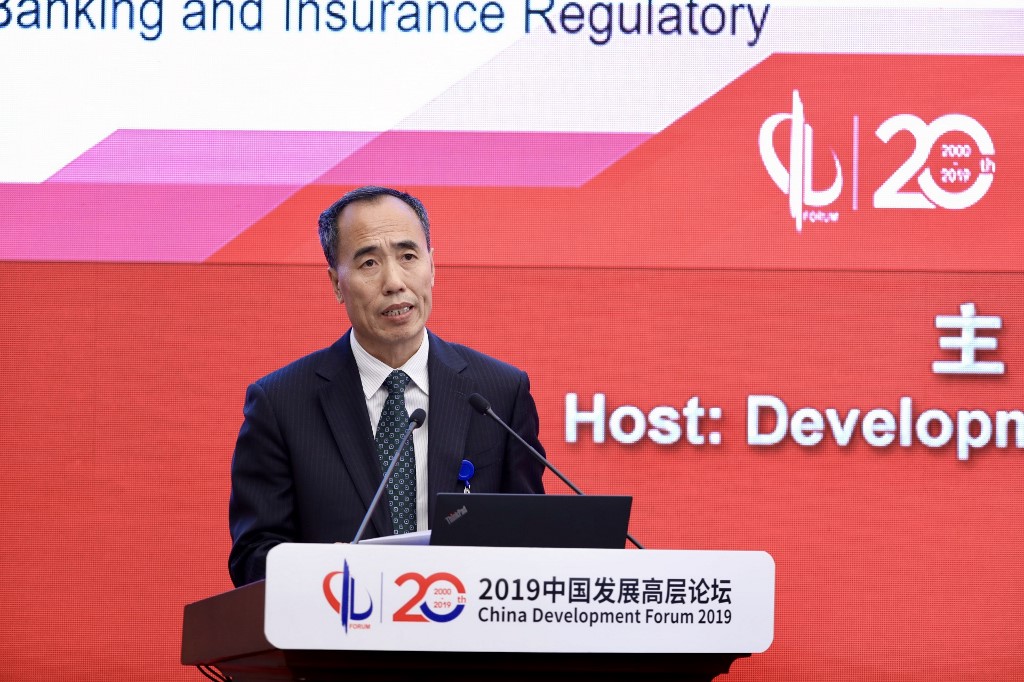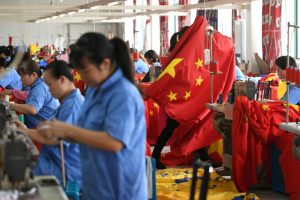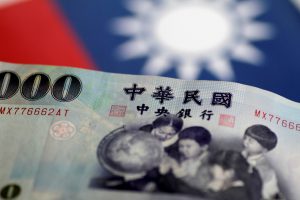(ATF) Regulators overseeing China’s banking and insurance sectors plan to focus help for temporarily distressed but promising companies while preventing ‘zombie companies’ from ‘free-riding’ the economic system.
The China Banking and Insurance Regulatory Commission (CBIRC) held an online mid-year work seminar to discuss disciplinary inspection and supervision and arrange key tasks for the second half of the year, China Economic Net reported.
The Commission plans to implement various financial relief policies, to aid distressed but still promising companies, while preventing moral hazards, and “zombie companies” from sucking more funds out of the system. Systemic financial risks should be firmly dealt with, top officials said.
At the end of June, domestic assets in China’s banking industry totalled 301.5 trillion yuan (about US$43 trillion), a year-on-year increase of 9.8%. In the first half, loans rose by 12.09 trillion yuan, a year-on-year increase of 2.42 trillion yuan. Non-performing loans totalled 3.6 trillion yuan, and amounted to a loan ratio of 2.1%.
Total insurance assets amounted to 21.7 trillion yuan, an increase of 5.7% from the start of the year. The overall solvency adequacy ratio of insurance companies was 244.6%, and the core solvency adequacy ratio was 233.6%. The main operating and regulatory indicators of bank and insurance institutions were within ‘a reasonable range’, the officials believed.
Zero tolerance
The Commission said it was necessary to adhere to a policy of zero tolerance in all areas. Officials were told to deepen anti-corruption work in the financial sector, and resolutely punish corruption problems behind major financial risks. They should pay close attention to key departments and key positions to comprehensively prevent graft and control of corruption risks. They should standardise personal investment and financing behaviour for all staff in the state system.
Top officials said it is necessary to stabilise businesses to ensure employment including private, small and micro enterprises. They should go all out to promote the restoration of normal economic and social cycles, and “unswervingly” promote quality economic development. Comprehensive measures had been taken to cancel improper fees and cut free rates to reasonable levels, as well as increasing loan concessions to cut the cost of corporate finance, so the financial system could make reasonable profits.
Some 1.5 trillion yuan had been distributed to various enterprises through the year. The Commission would significantly increase medium and long-term financial support to boost manufacturing and strategic emerging industries, and support major regional development strategies – to help overcome poverty and prevent pollution.
The CBIRC would plan ahead to deal with the substantial increase in bad loans in the banking system, to strictly categorise asset quality in accordance with the principle of substance over form, to make real profits, raise adequate provisions, replenish capital, and enhance risk resistance.
Fighting old demons
It also wants to stop the resurgence of old demons that have plagued the Chinese economy, such as shadow banking, real estate loans that allow the recurrence of blind expansion and extensive but useless operations, such as “ghost cities”.
Online loan risks were declared ‘cleared.’
The commission vowed to deal with illegal financial groups and major risk events in accordance with laws and regulations. It also wants to improve the transparency of supervision, and enrich prudential supervision and compulsory measures, to increase punishment, and ensure that punishment is efficient.
Party to monitor corporate governance
The meeting emphasised that it is necessary to continuously improve the corporate governance of bank and insurance institutions and integrate the party leadership into all aspects of corporate governance from both institutional and organisational aspects.
The Commission will strengthen equity management, shareholder qualification review, implement a “commitment system” for shareholders’ participation in equity, and resolutely implement industry bans for shareholders who violate laws and regulations.
It wants to improve the behaviour of upper management by strengthening the CBIRC code of conduct for executives. Another goal is to establish a regular mechanism for the disclosure of major illegal shareholders.
The Commission said it would broaden sources of funds for risk disposal and capital replenishment, and accelerate the reform of small and medium banks, plus steadily advance the reform of rural credit cooperatives, by adopting measures to local conditions, implementing classified policies, and maintaining the integrity of the local financial organisations. It plans to accelerate reforms on the use of insurance funds, strengthen the role of insurance in disaster protection, to speed up the development of catastrophe insurance, and promote the expansion of a third pillar of pension insurance.
Bank bosses doing their bit
Last Thursday, a regular press conference for the banking and insurance industry was held with Wu Fulin, president of the Export-Import Bank of China; Gu Shu, president of the Industrial and Commercial Bank of China; Liu Jin, president of China Everbright Bank; and Liu Tingjun, president and Chief Operating Officer of Taikang Insurance Group, who spoke about their resumption of work.
Wu Fulin said in the first half the Export-Import Bank invested about 905 billion yuan in foreign loans to stabilise foreign trade, which was a year-on-year increase of 50.6%. At the same time, a special relief fund of 50 billion yuan for foreign trade businesses and manufacturing enterprises will be set up to support manufacturing and import and export enterprises severely affected by the epidemic.
Meanwhile, Gu Shu said ICBC fully supported enterprises to resume work and production. In the first half, the bank issued 33.48 billion yuan in preferential interest rate loans to key epidemic prevention and control businesses and all were utilised. ICBC was also carrying out a “Chunrun Action”, providing some 1.18 trillion yuan in full-scale financing support in the first half, most of which (944.7 billion yuan) was lent to 41,000 enterprises.
Liu Jin said China Everbright Bank had sought to boost the quality and efficiency of small and micro enterprises with inclusive financial services. In the first half the bank’s loans to small and micro enterprises was 178.8 billion, an increase of 15% from the beginning of the year and with a higher growth rate of all other loans. The weighted average interest rate of newly launched inclusive small and micro enterprise loans was 4.99%, a decrease of 87bps from 2019.
Liu Tingjun said Taikang Asset Investment Bank had 97.2 billion deposits, with 15 billion yuan invested in general bonds and special bonds of local governments at all levels, plus 108.4 billion yuan in bonds of state-owned enterprises and private enterprises. A further 33 billion yuan of “securities investment funds was, newly invested in debt investment plans, trust plans and other financial products that focus on infrastructure, building transportation, medical and health industries. Taikang had also invested nearly 60 billion yuan in Hubei, which was hit hard by the coronavirus at the start of the year and is now enduring major flooding.
























